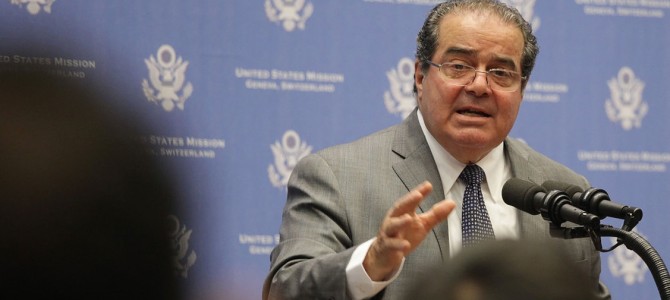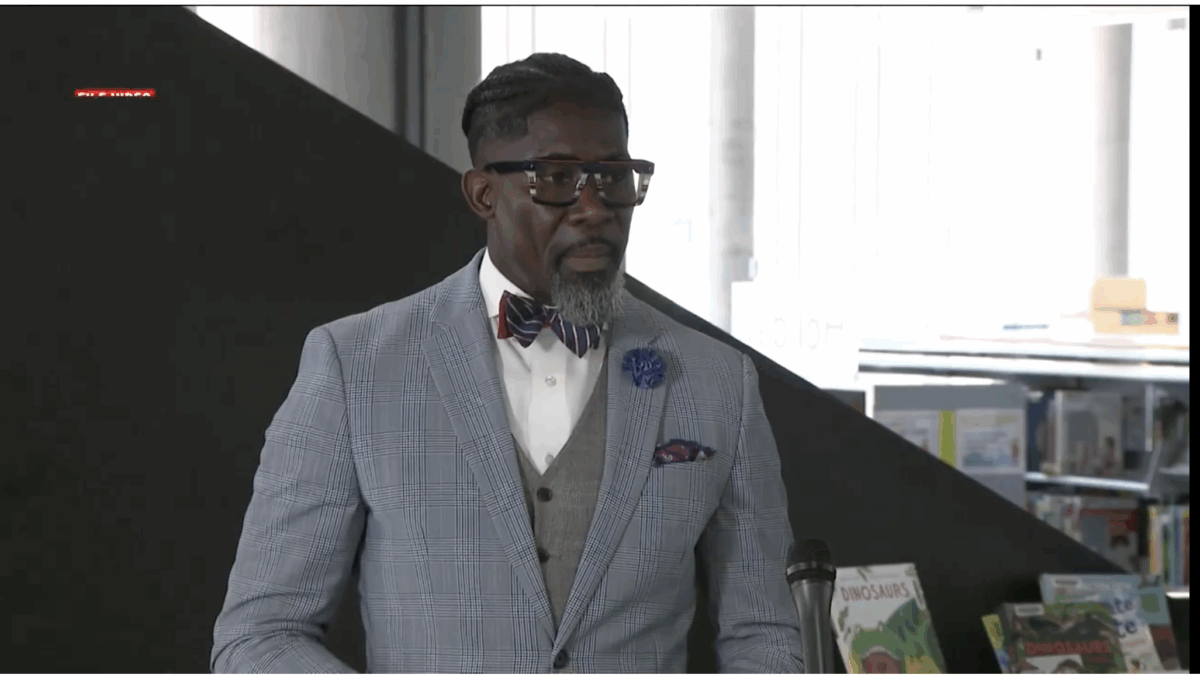
Legal scholars will debate and discuss the immense legacy of Supreme Court Justice Antonin Scalia for years to come. He was one of the longest-serving Supreme Court justices in history, the currently longest-tenured, and without a doubt the most influential of the justices on the present Supreme Court. Throughout his service on the bench, he held forth on the important political questions of the day: elections, health care, marriage, the rule of law, and more. He also wielded his acerbic wit even in cases of lesser significance, such as those affecting the world of sports.
His great legal talents were on full display in his famous 2001 dissent in PGA Tour, Inc. v. Casey Martin, as he elaborated on the nature of sports and government interference. In the case, Martin was a golfer with a degenerative leg disorder who experienced pain after walking for extended periods. Martin wanted to compete on the PGA Tour, but PGA rules required golfers to walk all 18 holes.
Martin sued under the Americans with Disabilities Act, arguing that the PGA Tour had to permit him to use a cart as a reasonable accommodation for his disability. In the 7-2 majority opinion, Justice John Paul Stevens reasoned that accommodating Martin’s request for a cart would not “fundamentally alter” the nature of the game of golf and therefore Martin could use a cart on tour.
Justice Clarence Thomas joined Scalia’s vigorous dissent, which became an instant classic in sports law. Scalia decried the activist majority opinion for misappropriating the rule-making authority of golf’s governing bodies, alternately describing the majority’s reasoning as “Alice in Wonderland,” “misty-eyed,” and “Kafkaesque.”
Golf Authorities Can Govern Themselves
He began his objection by rejecting a false premise of the majority: “Nowhere is it writ that PGA Tour golf must be classic ‘essential’ golf. Why cannot the PGA Tour, if it wishes, promote a new game, with distinctive rules (much as the American League promotes a game of baseball in which the pitcher’s turn at the plate can be taken by a ‘designated hitter’)?” He described the majority’s tilt at windmills as the pursuit of “federal-Platonic golf.”
Scalia is perhaps best known for championing an originalist approach to constitutional interpretation. The revival of originalism as a philosophy to be reckoned with is undoubtedly one of his most important achievements. In Martin, one can see why his originalism was so forceful, as he married his judicial philosophy to his talent as one of the best writers in the Supreme Court’s history:
I am sure that the Framers of the Constitution, aware of the 1457 edict of King James II of Scotland prohibiting golf because it interfered with the practice of archery, fully expected that sooner or later the paths of golf and government, the law and the links, would once again cross, and that the judges of this august Court would some day have to wrestle with that age-old jurisprudential question, for which their years of study in the law have so well prepared them: Is someone riding around a golf course from shot to shot really a golfer? The answer, we learn, is yes. The Court ultimately concludes, and it will henceforth be the Law of the Land, that walking is not a ‘fundamental’ aspect of golf.
Among Scalia’s many legacies is his vigorous defense of a restrained judiciary. In his opinions he frequently circled back to the question, “What gives this group of unelected judges the right to decide this question?” It was no different for sports. He mocked the majority’s usurpation of rule-making authority: “It has been rendered the solemn duty of the Supreme Court of the United States, laid upon it by Congress in pursuance of the Federal Government’s power ‘[t]o regulate Commerce with foreign Nations, and among the several States,’ to decide What Is Golf.”
A Sparkling Humility in Rule-Making
Another important focus of his was the rule of law and the importance of creating clear legal rules in contrast to some of the more flexible approaches other justices favored. That preference was evident in Martin, even in Scalia’s concise explanation of the private activity of sports: “[T]he very nature of competitive sport is the measurement, by uniform rules, of unevenly distributed excellence. This unequal distribution is precisely what determines the winners and losers – and artificially to ‘even out’ that distribution, by giving one or another player exemption from a rule that emphasizes his particular weakness, is to destroy the game.”
Although sports rules, unlike legal rules, are by nature arbitrary, this feature does not make them any more or less essential to the nature of the sport. As Justice Scalia accurately observed, in sports “the rules are the rules. They are (as in all games) entirely arbitrary, and there is no basis on which anyone – not even the Supreme Court of the United States – can pronounce one or another of them to be ‘nonessential’ if the rulemaker (here the PGA Tour) deems it to be essential.”
Perhaps Scalia even pondered the arbitrary nature of sports while shooting hoops from the arbitrarily placed three-point line of The Highest Court in the Land:
But since it is the very nature of a game to have no object except amusement (that is what distinguishes games from productive activity), it is quite impossible to say that any of a game’s arbitrary rules is ‘essential.’ Eighteen-hole golf courses, 10-foot-high basketball hoops, 90-foot baselines, 100-yard football fields – all are arbitrary and none is essential. The only support for any of them is tradition and (in more modern times) insistence by what has come to be regarded as the ruling body of the sport[.]
Who gives judges the right to decide whether changing a sport’s rules will fundamentally alter that sport, and how should they know better than those who govern the sport themselves? Faced with such questions, we can only hope that Justice Scalia’s replacement will respond as he did: “Either out of humility or out of self-respect (one or the other) the Court should decline to answer this incredibly difficult and incredibly silly question.”
The Martin case is not only a classic legal text on sports, but also a microcosm of Justice Scalia’s philosophy and greatness: clear insight on the subject discussed, brilliant writing, judicial restraint, and originalism applied no matter the case’s import. Farewell to a great jurist, an inimitable writer, and a devoted sportsman.









